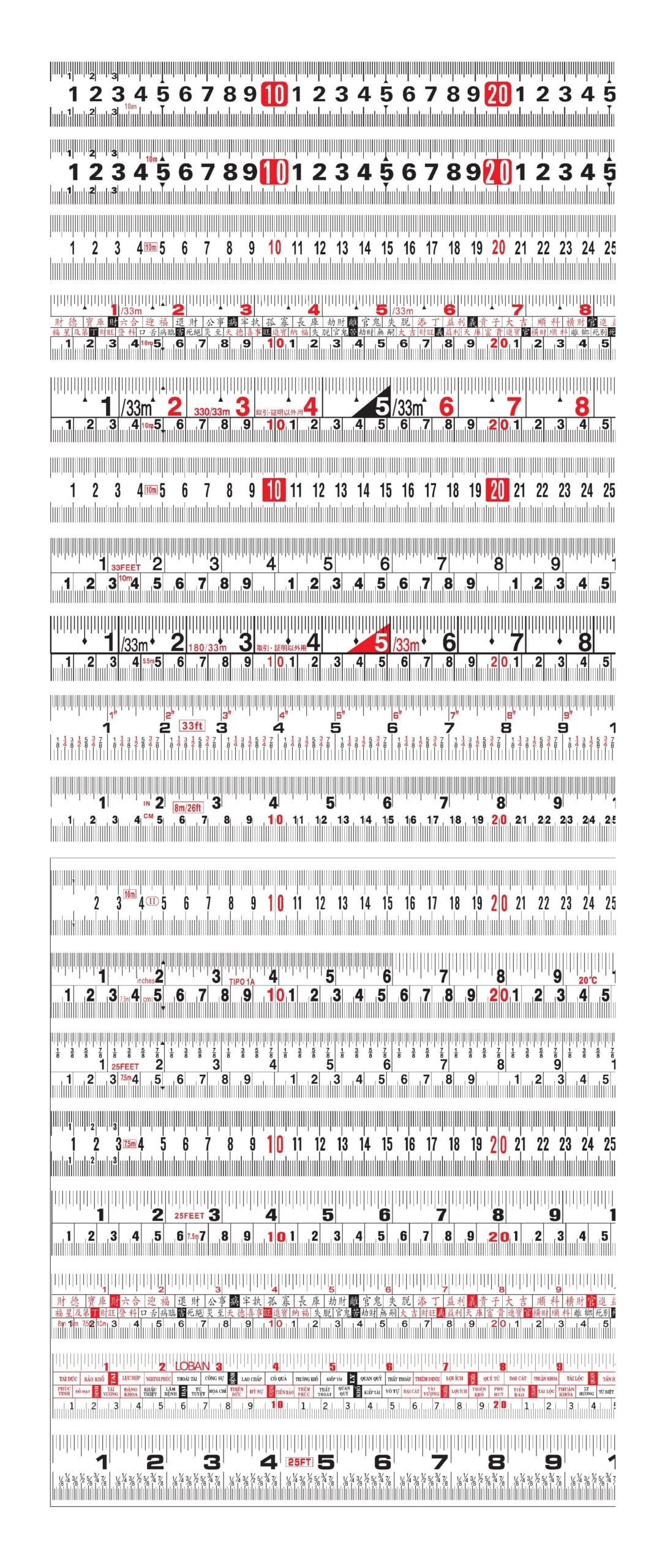Tape Measure Scales
Introduction to Steel Tape Measure
The steel tape measure is a commonly used tool in daily life, widely applied in construction, decoration, and household measurements. It boasts high accuracy, durability, portability, and ease of use, making it favored by users worldwide.
I. Classification
Steel tape measures can be classified into several types based on their structure, including self-rolling, braking, winding box, and winding frame models. Self-rolling tape measures are often used for small-scale measurements, while winding box and winding frame models are suitable for larger measurement tasks.
II. Construction
A steel tape measure primarily consists of eight components: shell, tape blade, brake, hook, carrying strap, spring, shock-proof protective case, and labeling. The shell is usually made of ABS new plastic, which is resistant to falls, wear, and deformation. The tape blade is crafted from 50# grade one steel strip with a thickness of 0.10mm, coated with eco-friendly paint for clear and bright markings.
III. Working Principle
The steel tape measure can be rolled up because it contains an internal spring. When pulling out the tape to measure a length, you are actually stretching the blade and the spring. After measurement, the spring automatically contracts, causing the blade to retract, allowing the tape measure to roll up by itself.
IV. Usage Method
When using a steel tape measure, you can either hang it on an object or press it against an object for measurement. The difference between these two methods lies in the thickness of the iron plate at the head of the tape measure. The head is designed to be loose so that when pressed against an object, the iron plate can compensate for its thickness, ensuring measurement accuracy.
V. Temperature Impact
The main structure of a steel tape measure is a flexible steel strip, which has the property of expanding and contracting with temperature changes. Therefore, it is essential to consider the temperature’s impact on measurement results when using a steel tape measure. When both the standard steel tape measure and the one being inspected are at 20°C, the size error caused by temperature is zero.
Size Comparison Table
| Length (Metric/Imperial) | Width (mm) | Notes |
|---|---|---|
| 1m / 3ft | 12.5 | Common small tape measure size |
| 2m / 6ft | 16 | Suitable for medium-length measurements |
| 3m / 10ft | 19 | Preferred for longer measurement distances |
| 5m / 16ft | 25 | Suitable for large-scale measurement projects |

Conclusion
As an essential tool for household and engineering measurements, the steel tape measure has earned the love of users worldwide due to its high accuracy, durability, and portability. By understanding the classification, construction, working principle, usage method, and temperature impact of steel tape measures, users can better utilize this tool to ensure measurement accuracy. Additionally, different specifications of steel tape measures offer a variety of options to cater to different measurement needs.

